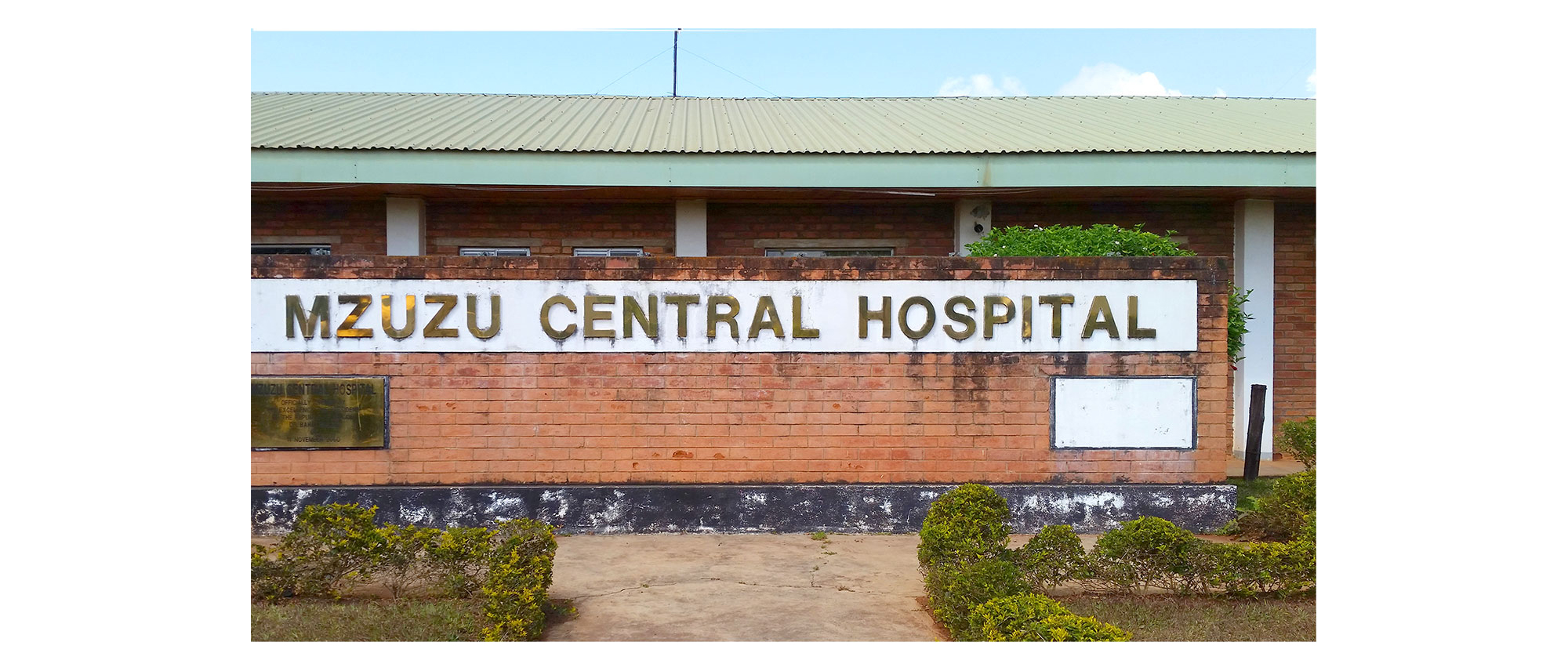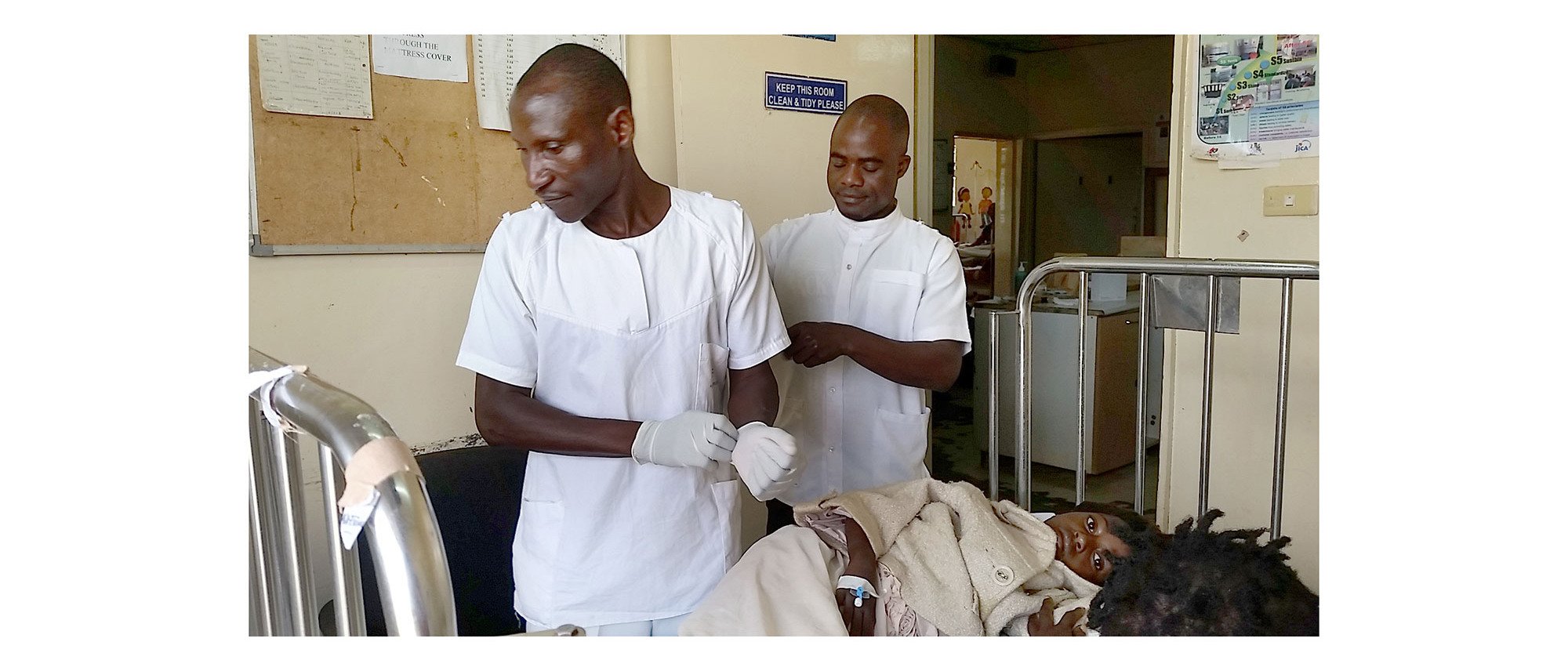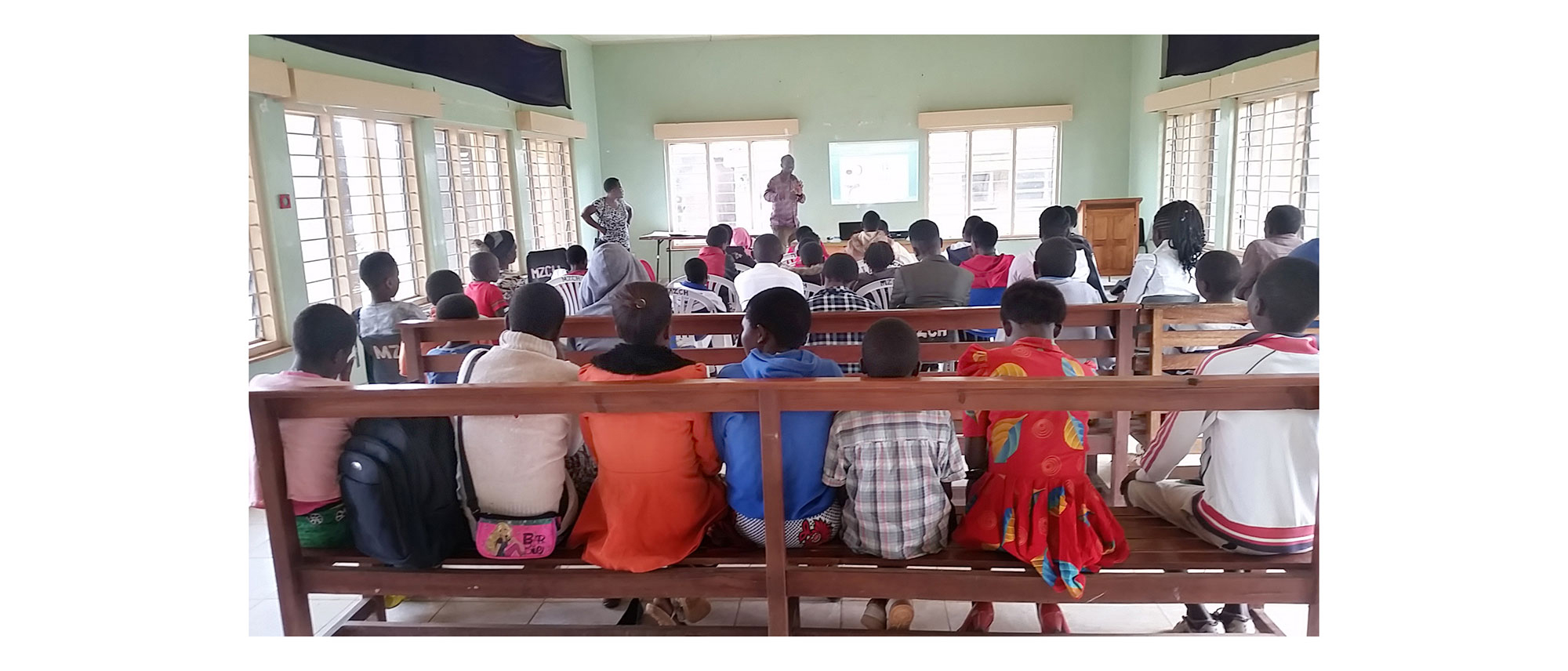Improving health outcomes for adolescents with Sickle Cell Disease

Every missed opportunity to educate a young person with sickle cell disease can mean the difference between crisis and control, life and loss. Sickle cell disease is a serious, inherited, lifelong condition. It is characterised by chronic haemolytic anaemia, bacterial infections, recurrent vaso-occlusive episodes that cause pain and widespread organ damage. Sickle cell disease is associated with a very high rate of mortality of about 50-90% and lifelong morbidity.
Background
Chikondi Chimbatata is an Advanced Childhood Nurse at Mzuzu Central Hospital in northern Malawi. The hospital’s paediatric outpatient clinic operates twice a week and attends to 30-40 patients with sickle cell disease each day. Approximately 40% of Mzuzu Central Hospital out-patient department patients are adolescents.
Chikondi was sponsored by JBI to participate in the Evidence Implementation Training Program to develop the knowledge and skills required to lead practice change in her clinical setting. As part of the program, Chikondi developed an evidence implementation project aimed at improving health outcomes for adolescents with sickle cell disease.
Adolescents with sickle cell disease
Adolescents living with sickle cell disease often carry a heavy, invisible burden. They have the highest rate of morbidity as they struggle to manage their condition, often without the support they need. This stage of their life, already filled with change, becomes even more complicated. As they transition from paediatric care to adult care, they must learn to recognise early warning signs and symptoms, make decisions about when to seek medical care, and to practice routine self-care behaviours.
"Evidence suggests that adolescents with sickle cell disease have limited disease knowledge and may benefit from educational interventions given that they are transitioning to take increasing responsibility for their own condition and for the routine practice of self-care behaviours”, Chikondi says.
The number of adolescent patients is expected to increase due to improvements made in the diagnosis, treatment and follow up care, enhancing the need for more support for adolescents through education and counselling. 
Educating to empower
A baseline audit conducted as part of the evidence implementation project found that health education practices by nurses were sub-optimal due to inadequate knowledge and limited opportunity for training. In addition, there were no guidelines or resources for nurses to use to assist them to educate adolescents with sickle cell disease.
“The aim of my evidence implementation project therefore was to promote evidence-based practice by nurses when educating and counselling adolescents with sickle cell disease at the outpatient setting, thereby improving adolescents’ knowledge of the disease”.
Initiatives grounded in evidence were co-developed with nursing staff. These included:
- education and training sessions for health professionals caring for adolescents with sickle cell disease;
- structured education programs for adolescents with sickle cell disease;
- training for adolescents on self-care management practices.
Educational guides and resources for facilitating adolescent education sessions were created with the enthusiastic support of management, doctors and nurses.
Evidence-based guidelines were also created for doctors and nurses to help embed the education of adolescents with sickle cell disease as routine practice in the outpatient setting.

“In togetherness there is power. Staff came together, took ownership of the project and even came in on weekends to attend training sessions.”
Sustaining success
The evidence implementation project sparked a turning point in adolescent care at Mzuzu Hospital. By equipping nurses with the knowledge and tools they needed, and by creating space for adolescents to truly understand their condition, the project transformed uncertainty into empowerment. Both nurses and patients gained the confidence to act on evidence, leading to measurable, lasting improvements in how sickle cell disease is understood and managed in the clinic.
A follow up audit confirmed that all nurses caring for adolescents with sickle cell disease received education and training as part of the project. A knowledge assessment found that nurses’ knowledge for training adolescents with sickle cell disease increased from 44% prior to education and training, to 85% following the structured education programs.
Adolescents who attended the interactive education sessions facilitated by the nurses, increased their knowledge of sickle cell disease from 26% to 72%. Importantly, their knowledge of self-care practices increased from 20% to 74%.
The project’s initial success is being sustained by conducting ongoing adolescent education sessions; regular peer support group forums to exchange experiences and discuss challenges; and by transferring knowledge to other health workers with mentoring projects.
Research is also currently being undertaken to investigate the impact of adolescents’ improved knowledge on school attendance, adherence to medication and clinic appointments, emergency visits, hospitalisation and quality of life.
Conclusion
This project demonstrates the power of evidence-based practice to drive meaningful change. Through determination, collaboration, and a focus on education, a team in northern Malawi has created a model of care that respects the challenges adolescents face while equipping them with the skills to thrive. The success of this initiative is not just in the numbers, but in the shift toward a more informed, empowered, and hopeful future for young people living with sickle cell disease.
Key takeaways
- When adolescents understand their condition, they are better equipped to manage it, and to live fuller, healthier lives.
- Training health professionals in evidence-based practice creates a ripple effect that improves outcomes across the system.
- Evidence changes lives. Behind every data point is a young person who is empowered to reshape their future.
References
Abel, R. A., Cho, E., Chadwick-Mansker, K. R., D'Souza, N., Housten, A. J., & King, A. A. (2015). Transition needs of adolescents with sickle cell disease. American Journal of Occupational Therapy, 69(2), 6902350030p1–6902350030p5.
Grosse, S. D., Odame, I., Atrash, H. K., Amendah, D. D., Piel, F. B., & Williams, T. N. (2011). Sickle cell disease in Africa: A neglected cause of early childhood mortality. American Journal of Preventive Medicine, 41(6 Suppl 4), S398–S405.